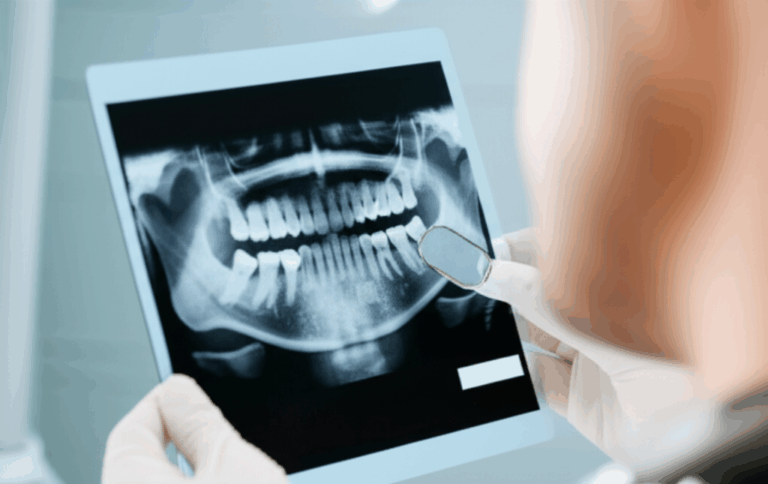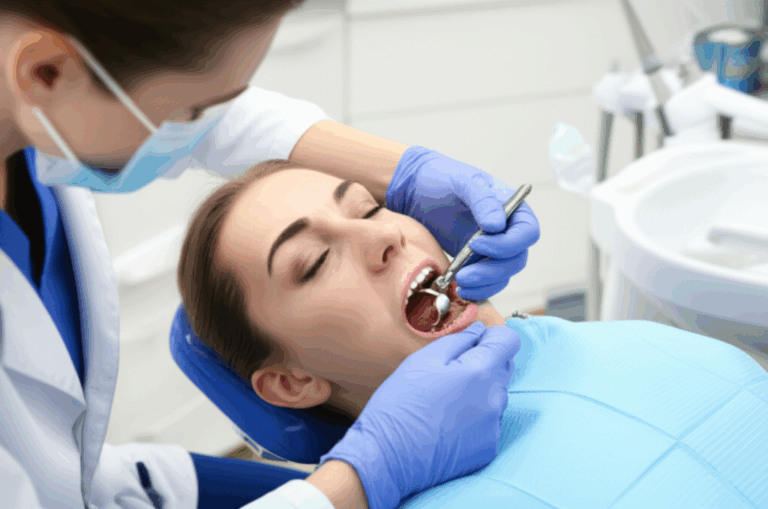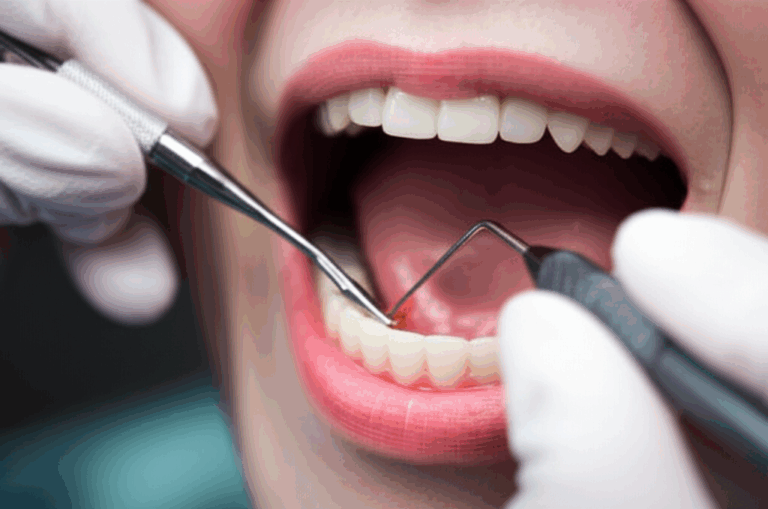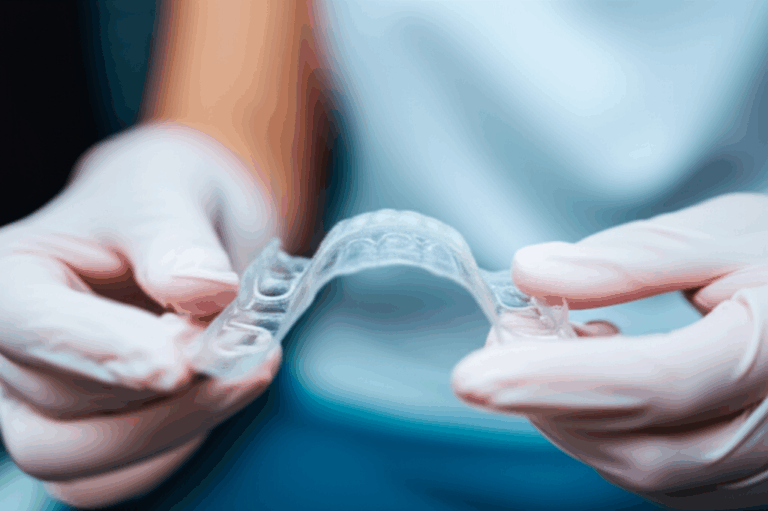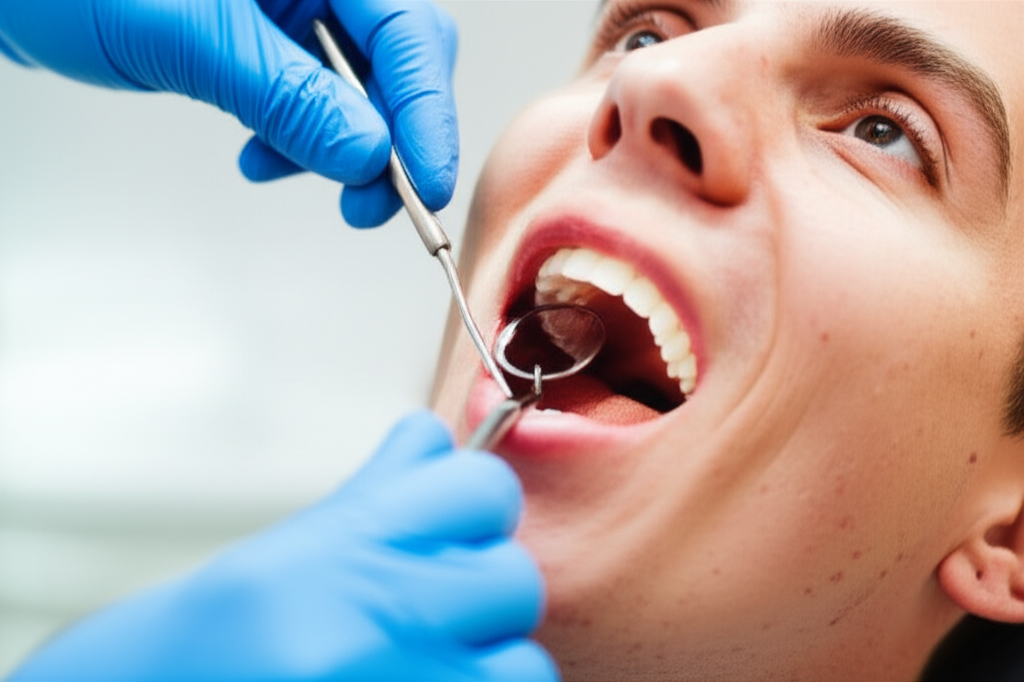
Can a Dentist Dislocate Your Jaw? Understanding Risks, Prevention, and What to Do
Worried about your jaw at the dentist? This article gives you simple answers about jaw dislocation during dental work. Keep reading to learn what could happen, who might have problems, how dentists protect you, and what you can do to keep safe. No need to be scared—get peace of mind here.
Table of Contents
What Does It Mean to Dislocate Your Jaw?
Your jaw is more than just a bone—it’s a moving hinge called the temporomandibular joint, or TMJ for short. Think of the TMJ like your jaw’s door hinge. It lets you open and close your mouth to talk, eat, or yawn.
A dislocated jaw means the lower jaw (the mandible) pops out of its usual spot at the TMJ. Most of the time, the jaw comes forward, which is called “anterior dislocation.” This can make it so you can’t close your mouth, and it feels scary. This isn’t the same as jaw pain or a “pop” when you open wide. A real dislocation locks your jaw out of place.
Key Terms:
| Term | Meaning |
|---|---|
| TMJ | Temporomandibular joint (jaw hinge) |
| Mandible | Lower jawbone |
| Dislocation | Jaw moves out of normal place |
| Subluxation | Jaw slips partly out, often pops back in |
Can a Dentist Really Dislocate Your Jaw? (The Short Answer)
Yes. It can happen, but it’s not common.
Dentists know how to care for your jaw, but some things can raise the chance of a dislocation, like long or hard treatments. Most times, with good communication and having the right tools, the chance stays really low.
You might worry because you’ve heard stories or know someone who got jaw pain after being at the dentist. The truth is, problems are rare and your dentist wants you to be comfortable.
How Your Jaw Works at the Dentist’s Office
Here’s how it works:
Your TMJ connects your jaw to your skull, close to your ear. The end of the jawbone (the “condyle”) sits in a socket and moves along a path called the “articular eminence.” Muscles pull and move the joint up, down, and side to side.
What can happen at the dentist?
- Long time with mouth open: If a procedure is long, you might have to keep your mouth open for over an hour. This can stress the joint and the tissue that holds it in place.
- Lots of force: When pulling hard teeth, like wisdom teeth, the dentist sometimes needs to use force.
- Muscle spasms: If you are nervous or tense, your muscles may pull the joint out of position.
- Old problems: Loose joints, past injuries, or TMJ trouble make it more likely to happen.
Imagine a door that’s a little loose—if you push it too far, it could come off the hinge. A strong door on good hinges doesn’t break so easily. Your jaw is like this.
Who Is at Risk for Jaw Dislocation During Dental Visits?
Not everyone has the same chance. Some people are more likely to have jaw problems.
1. TMJ Troubles and Jaw Problems:
If you have jaw pain, clicking, or locking (TMJ disorder), you may already know your jaw can act up. These troubles can make your joint weaker.
2. Extra Flexible Joints:
Some people can bend fingers back really far or are super bendy. Conditions like Ehlers-Danlos Syndrome make your joints loose, even your jaw.
3. Past Jaw Dislocation or Slipping:
If your jaw has come out before, tell your dentist. It’s more likely to happen again. Even just once matters.
4. Shallow Jaw Joints:
Some people’s TMJs are shaped so they pop out easier, just because of how they were born.
5. Anxiety or Tension:
Worry makes your jaw muscles tight. Holding your mouth stiff can increase risk.
6. Long Dental Work:
Any treatment that means your mouth is open for over an hour is harder on your jaw.
You might not know you have some of these, so it’s important to tell your dentist about any jaw problems.
Which Dental Procedures Carry a Higher Risk?
Here are the dental jobs that are harder on your jaw, especially if you’re already at risk.
Main Procedures That Stress Your Jaw:
- Wisdom Tooth Removal:
This is a big one. Taking out bottom wisdom teeth means keeping your mouth wide open for a long time and sometimes pulling hard.
- Tough Tooth Removal:
Any hard-to-pull tooth, crown, or root canal can make you keep your mouth open or steady for a long stretch.
- Root Canals (Back Teeth):
They’re not just sore—they take time.
- Deep Cleaning (Scaling and Planing):
Cleaning back teeth can tire your jaw.
- Many Crowns or Fillings:
Getting a bunch of crowns or bridges in one visit means your jaw works longer.
Here’s a simple table:
| Dental Procedure | Jaw Dislocation Risk Level |
|---|---|
| Wisdom tooth extraction (lower molar) | High |
| Tough tooth removal | Moderate-High |
| Root canal (back tooth) | Moderate |
| Deep cleaning (for gum issues) | Moderate |
| Getting many crowns at once | Moderate |
| Normal cleaning/filling (short visit) | Low |
Tip:
If you need special dental work like a bridge or implant, the lab that the dentist picks matters. Good work from a crown and bridge lab can help shorten your time in the chair, meaning less work for your jaw.
Signs and Symptoms: How Do I Know if My Jaw Is Dislocated?
Wondering what it feels like? Watch out for these signs:
- Sharp pain next to your jaw joint or near your ear.
- Jaw “stuck” open—you try to close but can’t.
- Crooked or “sideways” jaw—feels lopsided or looks off.
- Hard to talk or swallow because your mouth won’t shut.
- Face looks uneven.
- Teeth don’t fit together like normal.
You might hear a “pop” when it happens, then can’t close your mouth.
Sometimes the jaw only slips partly out (that’s called subluxation), and you might slide it back yourself. If your jaw won’t close or looks really off, get help quick.
How Do Dentists Prevent Jaw Dislocation?
It’s better to avoid a problem than to fix it. Here’s how dentists help keep your jaw safe:
1. Ask About Jaw Issues:
Dentists should ask if you ever had jaw pain, clicking, locking, or dislocation before.
2. Use Mouth Props or Bite Blocks:
These are small tools that gently keep your mouth open, not too wide. A night guard dental lab can even make custom helpers your dentist may use.
3. Give Jaw Breaks:
During longer treatments, you should get breaks to close your mouth and let your muscles relax.
4. Offer Jaw Support:
An assistant might gently hold your jaw while the dentist works.
5. Use Gentle Moves:
Dentists avoid using too much force when taking out teeth or working on your jaw.
6. Help Muscles Relax:
Numbing medicine or medicine to help you relax can stop muscle spasms. If you’re nervous, tell your dentist—they may use special steps or give you medicine for calm.
7. Pick Good Labs and Materials:
When your dentist works with a reliable digital dental lab, it can make visits shorter with better-fitting crowns or bridges.
What Should I Do If My Jaw Dislocates at the Dentist?
Don’t panic! Here’s what usually happens if your jaw pops out when you’re at the dentist:
1. Dentist Notices Your Problem:
The dentist will see that you can’t close your mouth or are in pain. They’ll stop what they’re doing right away.
2. Putting the Jaw Back:
Most of the time, the dentist or oral surgeon will gently push your jaw back in place (“manual reduction”). You’ll need to relax, and sometimes numbing medicine helps.
3. What’s Next?
Afterward, your dentist may:
- Give you medicine for pain or swelling.
- Tell you to use ice on your jaw.
- Say to eat only soft foods for a few days.
- Show you simple jaw exercises.
If it keeps happening, you may see a TMJ specialist or oral surgeon, or you may need a special appliance, sometimes from a top china dental lab, if the problem happens a lot.
What’s the Recovery Like?
Most people heal fast. Here’s what to expect:
- Let your jaw rest:
Stick to soups, soft eggs, and mushy foods for about a week. Avoid chewing gum, tough foods, and really wide yawns.
- Ease pain and swelling:
Regular pain pills or medicine for swelling can help. Try ice, wrapped in a towel, on your cheek.
- Gentle jaw moves:
If your dentist or TMJ doctor says so, do easy stretches to keep the jaw moving—safely.
- Avoid the things that hurt:
Don’t open too wide. If you yawn, support your chin with your hand.
- Go to Check-ups:
If your jaw goes out of place more than once, your dentist may get you a custom splint or guard.
If it keeps happening, you may need physical therapy or, but only rarely, surgery to fix the ligaments. But most people do well and feel better quickly.
Does Fear of Jaw Dislocation Mean I Should Skip the Dentist?
No! You shouldn’t skip dental visits. The risk is small—dentists see lots of patients every day, and this hardly ever happens. The chance is low, especially if you and the staff talk openly.
Keep your dental visit comfortable and safe:
- Tell your dentist about any jaw issues (pain, clicking, locking, or old dislocations).
- Speak up if you’re getting sore or tired or need a break during your appointment.
- Use custom mouth props or guards if you might need them.
- Keep going to the same good dentist—they know your history and care about your jaw.
Great care means your dentist partners with trusted dental labs and experts. You and your dentist are a team!
Bullet Point Summary
- Jaw dislocation at the dentist is very rare, but it can happen.
- The TMJ (jaw joint) can slip if your mouth is open too wide or under pressure.
- People with TMJ disorders, loose joints, anxiety, or past dislocation have higher risk.
- Longest or hardest dental treatments—like tough extractions—have the most risk.
- If you can’t close your jaw, have sharp pain, or your face looks uneven, there’s a problem.
- Dentists use mouth props, gentle touch, breaks, and talk to keep you safe.
- If it happens, most jaws can be put back in right away.
- Healing is fast with rest and soft food.
- Don’t let fear keep you away—just talk to your dentist!
- Good care and open talk make visits safe for all.
Further Questions (FAQ)
Q: Can I stop jaw dislocation for sure?
A: You can’t control everything, but telling your dentist your history, taking breaks, and relaxing your jaw really help.
Q: Are mouth props uncomfortable?
A: Most people think mouth props or bite blocks help—they take pressure off your jaw.
Q: What if my jaw comes out more than once?
A: Ask your dentist about seeing a TMJ specialist or getting a custom jaw guard.
Q: Does insurance pay for this?
A: Most plans cover emergency jaw care and TMJ stuff—but check with your insurance first.
Taking care of your teeth shouldn’t be scary. With the right knowledge and talking openly with your dentist, you can stay safe and comfortable—no matter your dental needs. If you have questions about special solutions, ask your dentist or read about their work with good dental labs. Your jaw and your smile are important!

